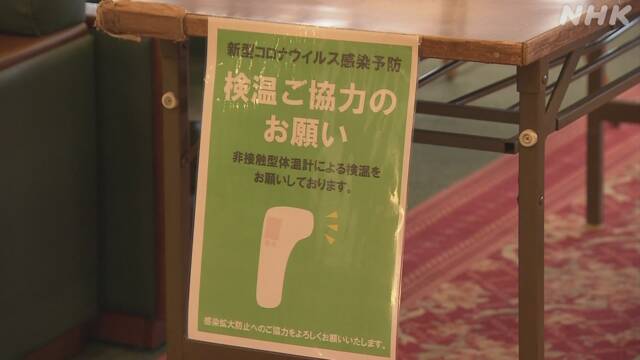Regarding infection control measures after the new coronavirus is shifted to Class 5 under the Infectious Diseases Act, the Ministry of Health, Labour and Welfare stated that hand washing and ventilation will continue to be effective, but that measures such as temperature measurement at the time of entry by businesses and others will be judged voluntarily based on effectiveness and cost.
After the new coronavirus is shifted to Class 5 on May 8, infection control measures will be changed from the current system that the government uniformly requires based on the law to a system that leaves it to the voluntary judgment of individuals and businesses.
The Ministry of Health, Labour and Welfare (MHLW) presented the key points of its basic approach to this on March 5.
Specifically, hand hygiene and ventilation, such as hand washing, will continue to be effective.
In addition, avoiding the so-called "3 Cs" and maintaining distance between people are effective for people at high risk of developing severe illness during the epidemic period.
On the other hand, regarding infection control measures such as temperature measurement at the time of admission, installation of disinfectant at the entrance, and installation of partitions carried out by business operators, etc., we would like them to make decisions based on the effectiveness and cost.
Minister of Health, Labour and Welfare Kato stated at a press conference after the Cabinet meeting, "The Ministry of Health, Labour and Welfare will continue to make efforts so that the public and business operators can smoothly promote infection control measures and engage in their respective economic and social activities after May 5."
Expert: "Take measures against infection slowly and urgently"
Regarding new infection control measures after the transition to Class 5, Professor Kazuhiro Tateda of Toho University and a member of the government subcommittee in charge of new coronavirus countermeasures said, "Installation of partitions and body temperature measurement at offices and other places have been excessively carried out as infection control measures, and it is important to take measures that are judged to be unnecessary little by little while retaining effective measures in situations. For example, the installation of partitions is not so necessary in situations where both parties are wearing masks, but in situations where staff come into contact with many people who have taken off their masks, such as at the counter of a government office, it is meaningful to install partitions to prevent direct exposure to flying droplets. It is important to take proper measures against infection."

